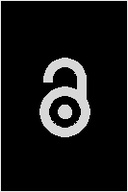Explore

The enduring appeal of liberalism lies in its commitment to the idea that human beings have a "natural" potential to live as free and equal individuals. The realization of this potential, however, is not a matter of nature, but requires that people be molded by a complex constellation of political and educational institutions. In this eloquent and provocative book, Uday Singh Mehta investigates in the major writings of John Locke the implications of this tension between individuals and the institutions that mold them. The process of molding, he demonstrates, involves an external conformity and an internal self-restraint that severely limit the scope of individuality.Mehta explores the centrality of the human imagination in Locke’s thought, focusing on his obsession with the potential dangers of the cognitive realm. Underlying Locke’s fears regarding the excesses of the imagination is a political anxiety concerning how to limit their potential effects. In light of Locke’s views on education, Mehta concludes that the promise of liberation at the heart of liberalism is vitiated by its constraints on cognitive and political freedom.
This book is included in DOAB.
Why read this book? Have your say.
You must be logged in to comment.
Rights Information
Are you the author or publisher of this work? If so, you can claim it as yours by registering as an Unglue.it rights holder.Downloads
This work has been downloaded 40 times via unglue.it ebook links.
- 40 - epub (CC BY-NC-ND) at Unglue.it.
Keywords
- Biography: philosophy and social sciences
- Political Science & Theory
- Political science and theory
- Politics & government
- Social and political philosophy
- Society & Social Sciences
- thema EDItEUR::J Society and Social Sciences::JP Politics and government::JPA Political science and theory
Links
DOI: 10.7298/v7yf-ak53Editions

